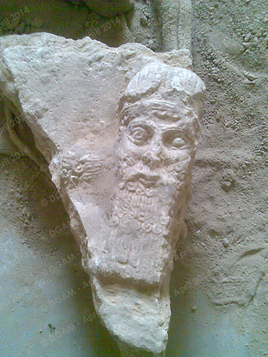
In last week's Torah portion, we read, "If you listen to [God's] rules and obey them well, Adonai your God will keep the covenant and the love that God promised to your ancestors. God will love you and bless you…" (Deuteronomy 8:12-13). We also read, "If you forget Adonai your God and follow after other gods and worship them…, you shall perish" (Deuteronomy 8:19).
Why is it hard to accept this idea? What's wrong with thinking that God rewards people who obey God's commandments and punishes those who do not? Simply put, we find it difficult to believe it because it does not appear to be true.
All around us, we see good people who have pain and difficulty in life, and we see bad people who appear to have comfort and pleasure. Clearly, a strict and literal belief in a God who rewards the good and punishes the bad in this world is not acceptable.
In the opening of this week's Torah portion (Re'eh), though, we see some small indications that the Torah's view on reward and punishment is more nuanced than the simple caricature we might imagine. The portion begins with these words:
See, I am placing before you today blessing and curse: the blessing that you will listen to the commandments of Adonai your God that I have commanded you today, and the curse if you do not listen to the commandments of Adonai your God, but turn from the path that I command you today to follow after other gods that you have not known. (Deuteronomy 11:26-28)
Since ancient times, readers of Torah have noticed an oddity in the wording of this passage. Moses says here that there will be "the blessing that you will listen" and "the curse if you do not listen" (emphasis added). The shift from "that" (אשר) to "if" (אם) must be intentional and it must have meaning. What is that meaning?
It could be that Moses is saying that God does not offer blessings as a quid pro quo for listening to and obeying the commandments. Performing acts that God has commanded is itself a reward. The blessing you get for listening to the commandments is that you are able to listen to the commandments.
That, of course, is a paradoxical statement. But, I think, it is a paradox that makes spiritual sense. When you do something that is good and right – something that God wants you to do – your understanding of what makes it good deepens and it becomes a source of joy to you in your life.
For example, I have seen people who show up for a social action project – making peanut butter and jelly sandwiches for the homeless, for example – who come the first time because they have some abstract notion that it is "the right thing to do." After doing it once, though, their reasons for volunteering change. The come a second and a third time because they realize that it is not just an intellectually and morally laudable choice. They see that helping others is deeply rewarding on a personal and emotional level. It does not just make them feel good about how they have chosen to spend an hour of their time. They discover that they feel good about their whole being and about the world around them in a way they had not anticipated. Performing a "good deed" becomes a reward in and of itself greater than any material gain or comfort.
This is what the rabbis mean when they say, "The reward of a mitzvah is a mitzvah" (Pirkei Avot 4:2). There is no promise of material wealth and comfort for those who do what is right and just. There is no "pie in the sky when you die" for the righteous. If you want to see the reward for doing what God wants, look within yourself. You will see it in the way that your sense of connection to other people grows and in the way that your connection to God grows. That is the reward.
So, why does the Torah say that there is a curse if you do not listen to God's commandments? Why is the curse for the wicked portrayed as a literal quid pro quo when the reward is more ambiguously phrased as a paradox? Should we believe that God will curse us for doing what is wrong?
I don't think so, but I also think that the Torah is wise not to present the result of wrongdoing as an absolute parallel and opposite to the benefit of good behavior. Think of it this way: If there were a strict parallel, then the punishment for bad behavior would be the opposite of the reward for good behavior. Instead of God blessing us with the ability to listen to what God wants from us, God would punish bad behavior by removing our ability to hear God.
I don't want to think that God gives anyone a curse that prevents them from listening. No matter what we have done, no matter how far we have strayed from doing what God wants, God still wants us to be able to open our ears and our hearts to turn back to God. That is why the Torah could not use the same word to explain how God rewards us and punishes us. Doing a mitzvah is a blessing in itself, but not doing a mitzvah does not cut off our access to hear what is good and right.
This, more nuanced way of reading Deuteronomy's theology of reward and punishment is comforting to me. I cannot believe in a God who showers the good with comfort and joy and punishes the wicked with sorrow and pain. It's not the way the world works in my experience. But I can accept a reading of the book that allows for the possibility that the blessing given to the good is an awareness that doing what is good enriches our inner lives more than we could have imagined.
Other Posts on This Topic:
Ekev: Deuteronomy vs. Job
A Prison for the Not Guilty





 RSS Feed
RSS Feed
